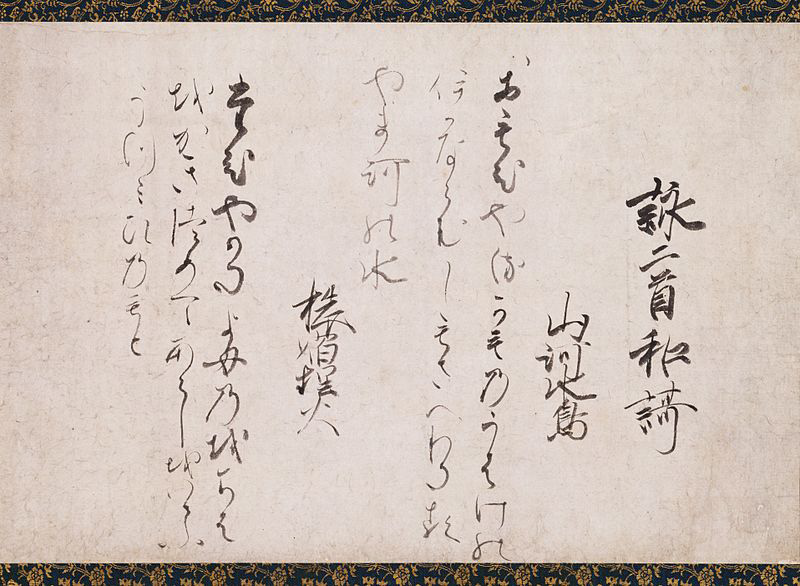2
Negawakuwa / hana no shita nite
(I’d like to die / in spring)
SAIGYO
(ca. 1180)
The poem belongs to the Chants of the Hermitage by this 12th century Japanese monk. Its beauty comes from its extreme simplicity. Even when it is read from a translation, the reader guesses that each and every word that make up the poem occupy its right place, that none of them could find a synonym, that nothing could be added, that nothing could be deleted. One may be tempted to repeat it over and over again, in the belief of invocating something essential and absolute.




















